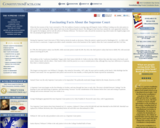
A list of fascinating facts about the Supremem Court of the United States of America
- Subject:
- History
- Social Science
- Social Studies
- Material Type:
- Reading
- Provider:
- ConstitutionFacts.com
- Date Added:
- 01/03/2023
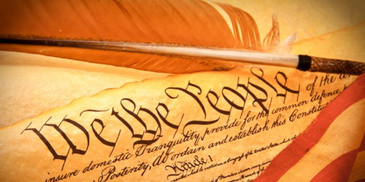

A list of fascinating facts about the Supremem Court of the United States of America
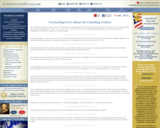
A list of fascinating facts about the United States Constitution
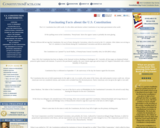
A list of fascinating facts about the United States Constitution

This lesson addresses two essential questions: To what extent does the Bill of Rights provide a "blanket of protection" for American citizens? Why do many Americans believe that the Bill of Rights is especially relevant today?

Discover the work of Cornelia Adèle Fassett, one of the first female portrait artists of the 19th century to portray American presidents, politicians, and Supreme Court Justices.
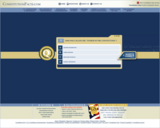
Take the Founding Fathers quiz to find out how much you know about the Founding Fathers of the United States of America.
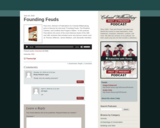
Since 2005, the "Past and Present" podcast from Colonial Williamsburg has taken you behind the scenes to meet interpreters, chefs, tradesmen, musicians, historians, curators, and more. We offer two versions of our podcast: one that's audio-only and one that includes a slideshow. In this episode, Paul Aron, Director of Publications for Colonial Williamsburg, joins to discuss his new book Founding Feuds: The Rivalries, Clashes, and Conflicts that Forged a Nation.” In this podcast, Paul delves into some of the most infamous feuds of the 18th and 19th centuries that included some very famous names such as Thomas Jefferson, James Madison, and Alexander Hamilton.

This lesson will use close reading of documentary selections and class discussion to analyze the concepts of “freedom” and “equality” as they have appeared and been tested throughout American history. By the conclusion of this lesson, students should be able to view these ideas as contested concepts that can and often do exist in tension. Students will assess whether or not “equality” comes at the expense of “freedom” and vice versa.

In colonial Virginia, those that followed religions other than the Church of England were considered dissenters.”

General George Washington held a rally to launch his 2016 campaign to promote participation in the democratic process. Follow along at itstartshere2016.org
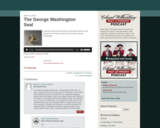
Since 2005, the "Past and Present" podcast from Colonial Williamsburg has taken you behind the scenes to meet interpreters, chefs, tradesmen, musicians, historians, curators, and more. We offer two versions of our podcast: one that's audio-only and one that includes a slideshow. In this episode: A pocket-sized ornament gives monumental insight into the private life of America’s best-known General: George Washington.
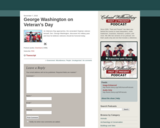
Since 2005, the "Past and Present" podcast from Colonial Williamsburg has taken you behind the scenes to meet interpreters, chefs, tradesmen, musicians, historians, curators, and more. We offer two versions of our podcast: one that's audio-only and one that includes a slideshow. In this episode, as Veterans Day approaches, the venerated Virginian veteran himself, Gen. George Washington, discusses his military past and how he believes veterans should be honored today.
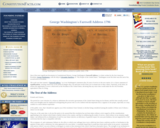
One of the most significant documents in Constitutional History, George Washington's Farewell Address, is a letter written by the first American President, George Washington, with the help of Alexander Hamilton, to "The People of the United States." Washington wrote the letter near the end of his second term as President.

The purpose of this lesson is to engage students in a discussion of the Constitutional Convention. Students will explore the key disputes that arose during the Convention, including how power would be divided between the federal and state governments and the various branches of government. Furthermore, students with understand the importance of compromise during the Constitutional Convention. They will synthesize various sources explored debate and compromise and the Convention to understand the idea of civic discourse--discussion rooted in mutual respect for differences and a desire for understanding--in the United States.

Thomas Jefferson explains the importance of the Bill of Rights.
Colonial Williamsburg's Center for Teaching, Learning, and Leadership provides American history and civics materials nationwide. For more great videos, lesson plans, interactive games and more, create a free account on the Colonial Williamsburg Education Resource Library: resourcelibrary.history.org.
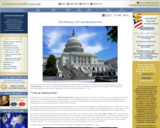
Citizens of the United States have celebrated Independence Day and Presidents' Day since the 1870s, and in 2005, the nation began to celebrate Constitution Day. Also know as Citizenship Day, Constitution Day is an American holiday honoring the day 39 delegates to the Constitutional Convention signed the United States Constitution. This historic date was September 17, 1787.
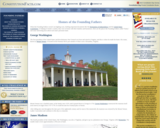
When the Founding Fathers weren't out fighting wars, drafting important documents like the Declaration of Independence and the United States Constitution, or helping to found a country, they were at home with their families and businesses. Here are the places the Founding Fathers called "home," and some interesting facts about each man's personal estate.

55 min
This lesson addresses the virtue of justice, which requires that rules are applied and enforced equally for everyone. Students will analyze the virtue of justice by evaluating a letter from Jourdon Anderson to his former slave owner. They will consider how Jourdon received justice for himself and for his family and how they can seek justice on behalf of themselves and other people.

This lesson on the Electoral College is part of Gilder Lehrman’s series of Common Core State Standards–based teaching resources. These resources were written to enable students to understand, summarize, and analyze original texts and secondary sources of historical significance. Students will demonstrate this knowledge by answering questions that seek to measure their conceptual understanding of the topic as well as engaging them in thoughtful discussions. Students are required to express themselves in writing. Students are asked to not only explain, but make fact-based arguments based on textual evidence.

Learn about the women who carved a path for future female advocates, judges, and Supreme Court Justices.